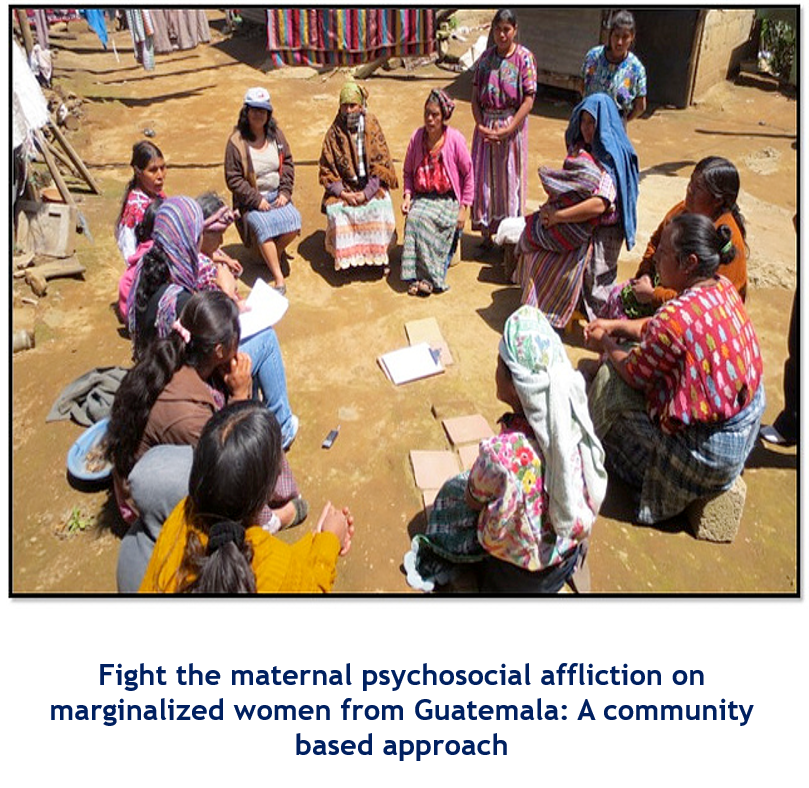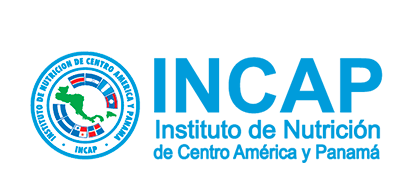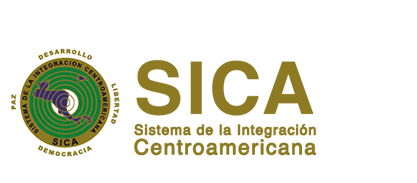
Buena Semilla Project (Good Seed Project) Fight the maternal psychosocial affliction on marginalized women from Guatemala: A community-based approach.
o |
|
Participating institutions name and acronyms |
Institute
of Nutrition of Central America and Panama (INCAP) Grand Challenges Canadá |
|
CIIPEC Researchers |
Anne Marie Chomat, MD, MPH Manuel Ramírez-Zea, MD, PhD
|
|
|
Duncan
Pedersen, MD, MPH Ricardo
Araya, MRCPsych, PhD |
|
Funding agency |
Grand
Challenges Canada Grands
Defis Canada |
|
General objective |
On the first
phase of the project the objectives are: 1.Increase
the comprehension of psychosocial stress and mental disease of women on reproductive
age, as they are perceived among the rural and urban marginalized communities
from Quetzaltenango. 2.Increase
our knowledge about the resources –formal and informal – available for women
who fight to overcome the high levels of psychosocial stress. 3.Assess the
needs of the community for an intervention project, interests and the
capacities of community health promoters and midwives on participating as
leaders on the presentation of the intervention and the specifications
required for carrying out a second phase. The
second phase of the study will be developed based on the results of the first
phase and a protocol will be filed before the ethics committee for its
approval. This phase aims to empower the marginalized communities to care and
promote health and wellbeing of women and their children. On phase 2 the
objectives are: 1.Develop
local capacities among community leaders to identify women that are facing
high levels of adversity and have psychosocial stress signs. 2.Provide
such women with tools (educative, practical and social) to help them overcome
and diminish local adversities through women therapy groups. 3.Enhance
community networks for them to support community leaders, women who have high
levels of psychosocial stress and women therapy groups. 4.Taking into
account community resources and local traditions, to reach sustainability
along time to reproduce the initiative on similar contexts. 5.Contribute
to the self-sufficiency of women and the therapy groups of women for the creation
of microenterprise that allow the sustainability of the group activities, and
provide financial independence of the participants.
|
|
Methodology |
Participatory
action research (PAR) The project
will be based on the participatory action research (PAR) method, to
contribute to solve health problems promoting a mutual confidence environment
and collaboration between researchers and community members. The PAR
methodology will help to assure the local relevance of the project,
contextualizing methods and results, and facilitating the translation of the
research results for them to be relevant and make sense for local action. Research
methods The mixed
research methods (qualitative and quantitative) aim to obtain information for
a better comprehension of human experiences, perceptions, motivations,
intentions and behaviors of the participants of the project based on the
description and observation. Such contextualized and culturally rich
information may be critical to contextualize quantitative data. This phase
was carried out through structured questionnaires, semi structured interviews
and focus groups. The application of these methods will allow to carry out a
profound research as well as to understand the different local perspectives
and their experiences.
|
















